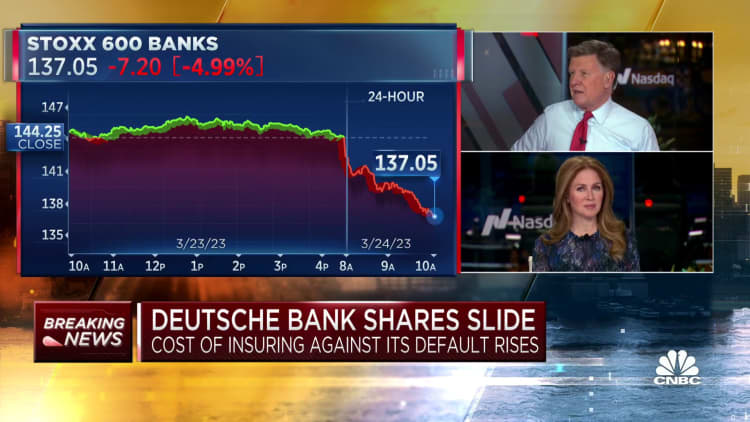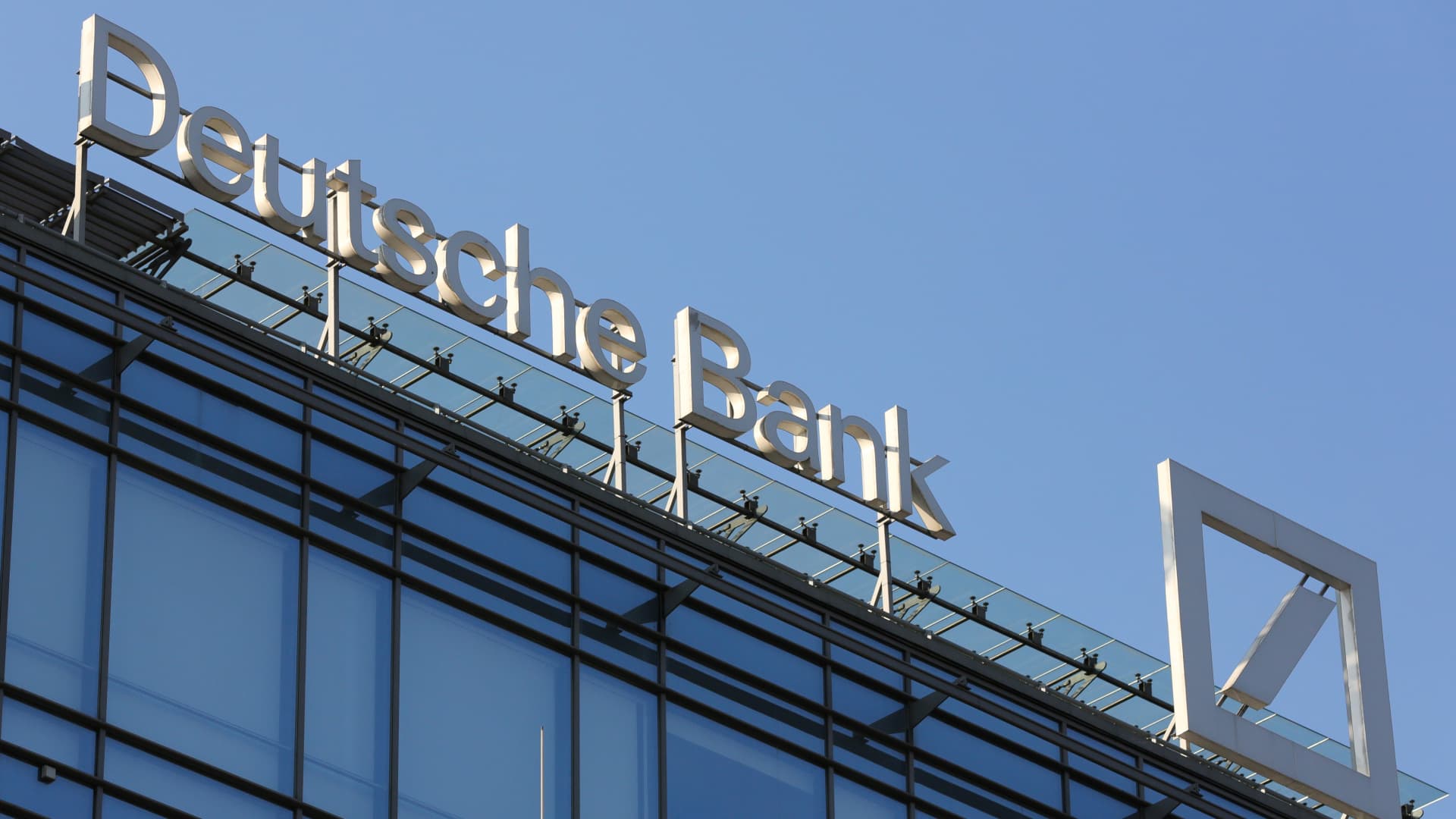
Deutsche Bank shares fell by more than 14% on Friday following a spike in credit default swaps Thursday night, as concerns about the stability of European banks persisted.
The German lender’s Frankfurt-listed shares retreated for a third consecutive day and have now lost more than a fifth of their value so far this month. Credit default swaps — a form of insurance for a company’s bondholders against its default — leapt to 173 basis points Thursday night from 142 basis points the previous day.
The emergency rescue of Credit Suisse by UBS, in the wake of the collapse of U.S.-based Silicon Valley Bank, has triggered contagion concern among investors, which was deepened by further monetary policy tightening from the U.S. Federal Reserve on Wednesday.
A logo stands on display above the headquarters of Deutsche Bank AG at the Aurora Business Park in Moscow, Russia.
Andrey Rudakov | Bloomberg | Getty Images
Swiss and global regulators and central banks had hoped that the brokering of Credit Suisse’s sale to its domestic rival would help calm the markets, but investors clearly remain unconvinced that the deal will be enough to contain the stress in the banking sector.
Deutsche Bank’s additional tier-one (AT1) bonds — an asset class that hit the headlines this week after the controversial write-down of Credit Suisse’s AT1s as part of its rescue deal — also sold off sharply.
Deutsche led broad declines for major European banking stocks on Friday, with German rival Commerzbank shedding 9%, while Credit Suisse, Societe Generale and UBS each fell by more than 7%. Barclays and BNP Paribas both dropped by more than 6%.
Deutsche Bank has reported 10 straight quarters of profit, after completing a multibillion euro restructure that began in 2019, with the aim of reducing costs and improving profitability. The lender recorded annual net income of 5 billion euros ($5.4 billion) in 2022, up 159% from the previous year.
Its CET1 ratio — a measure of bank solvency — came in at 13.4% at the end of 2022, while its liquidity coverage ratio was 142% and its net stable funding ratio stood at 119%. These figures would not indicate that there is any cause for concern about the bank’s solvency or liquidity position.
Deutsche Bank declined to comment.
Spillover risk
Financial regulators and governments have taken action in recent weeks to contain the risk of contagion from the problems exposed at individual lenders, and Moody’s said in a note Wednesday that they should “broadly succeed” in doing so.
“However, in an uncertain economic environment and with investor confidence remaining fragile, there is a risk that policymakers will be unable to curtail the current turmoil without longer-lasting and potentially severe repercussions within and beyond the banking sector,” the ratings agency’s credit strategy team said.
“Even before bank stress became evident, we had expected global credit conditions to continue to weaken in 2023 as a result of significantly higher interest rates and lower growth, including recessions in some countries.”
Moody’s suggested that, as central banks continue their efforts to reel in inflation, the longer that financial conditions remain tight, the greater the risk that “stresses spread beyond the banking sector, unleashing greater financial and economic damage.”
(Except for the headline, this story has not been edited by PostX News and is published from a syndicated feed.)

